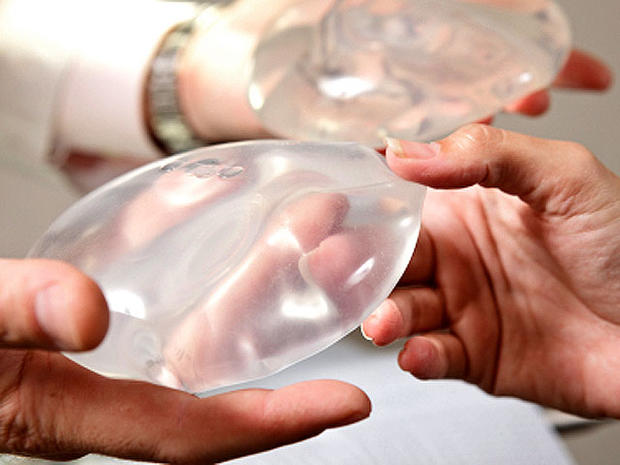French gov't wants breast implants removed from 30,000 women
(CBS) The French government wants more than 30,000 women to have their breast implants removed amid reports the implants could rupture or cause cancer.
PICTURES: Plastic surgery pros warn: Beware these 10 red flags
French officials plan to announce before the end of this week that women who received implants manufactured by Poly Implant Prothese (PIP) should get them removed immediately, the French paper Liberation reported.
"We have to remove all these implants," said Dr. Laurent Lantieri, a plastic surgeon on the French advisory committee, BBC News reported . "We're facing a health crisis, linked to a fraud."
According to The Guardian, PIP was shut down last year after it was found to be manufacturing implants with industrial silicone typically used to make electronic and computer parts. The cheaper material increased the risk that the implant would burst. But French doctors sounded an alarm last week when they announced that eight cases of cancer - mainly breast cancer - had been reported in women with the implants.
"There's no urgency, but we have no choice," Lantieri said, urging this move is not precautionary but preventive. "All these implants have to be removed."
Previously, women with the implants were only asked to see a doctor to make sure the implant was intact, and to get them removed only if they had ruptured. Now French officials are urging all women with these implants to see a doctor immediately. The French government would pay for the removal operation but not necessarily replacement implants, BBC news reported.
PIP's implants aren't only found in French women - thousands of British women also have undergone surgery with the questionable implants. But some British experts think France taking this extraordinary measure might a step too far.
"One death among tens of thousands of patients with implants is certainly not a case for blue flashing lights," Douglas McGeorge, former president of the British Association of Aesthetic Plastic Surgeons, told The Daily Mail. "It does seem rather an extreme measure."

